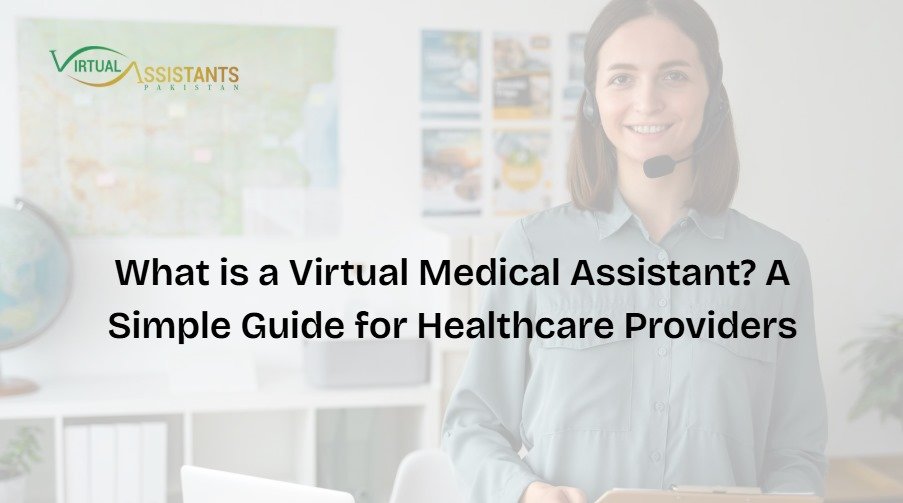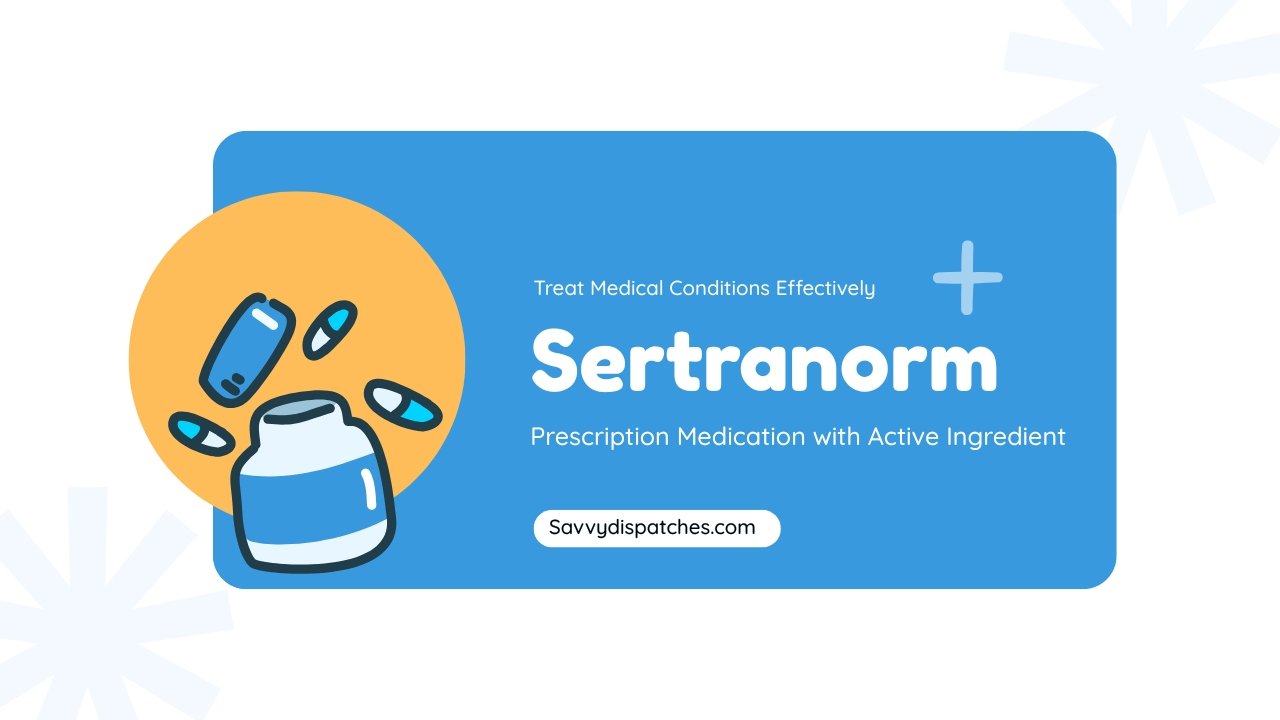Health & Fitness
What is a Virtual Medical Assistant? A Complete Guide for Healthcare Providers

Healthcare in the U.S. is more demanding these days than before. Doctors, clinics, and telehealth providers are doing a big job: giving good care and managing lots of paperwork. Tasks like booking appointments, updating records, and billing can be very tiring.
That is the point, you need Virtual Medical Assistants (VMAs). Just like virtual assistants in business, VMAs work remotely to handle important but time-consuming tasks—freeing up doctors and staff to focus more on patients. More and more medical practices across the U.S. are hiring trained virtual assistants from overseas to help with both administrative and clinical work. Why? Because it saves money, boosts efficiency, and gives access to skilled professionals who can manage things like EMR updates, patient follow-ups, and more. If you have been asking, “What is a virtual medical assistant, and how could one help my practice?” — this guide has the answers.
Definition & Core Role
What is a Virtual Medical Assistant?
A Virtual Medical Assistant (VMA) is a trained professional who works remotely and facilitates healthcare providers with admin tasks, simple clinical duties, and daily operations. Instead of working on-site, VMAs typically work from countries such as the Philippines or Pakistan, but use online tools to stay connected and work as part of the team.
Their core role is simple: reduce the non-medical workload of healthcare providers so that doctors and staff can focus more on patient care. From managing schedules to updating medical charts, VMAs are the “behind-the-scenes” team members keeping clinics running smoothly.
Difference Between a Medical VA and a General VA
It is very important to understand how a Medical Virtual Assistant differs from a General Virtual Assistant:
Medical Virtual Assistant:
- Specialization in healthcare.
- They know medical terms, follow HIPAA rules, use EMR/EHR systems, and understand insurance.
- Handles sensitive patient information responsibly.
General Virtual Assistant:
- Provides administrative support for businesses in various industries.
- May lack medical-specific training.
- Not suitable for handling confidential patient records.
For US healthcare providers, this difference matters a lot. A regular Virtual Assistant does only simple tasks like book appointments or answer calls, but a Medical VA is trained and has special knowledge to use EMR systems, work with pharmacies, and handle insurance claims.
Responsibilities of a Medical Virtual Assistant
Medical Virtual Assistants (VMAs) facilitate doctors by completing their different tasks, like admin and basic clinical tasks, making their workday smoother and more efficient. Here’s what they usually do:
Administrative Tasks (Scheduling, Patient Intake, Data Entry)
- Appointment Scheduling
First of all, they manage the doctor’s calendar, book appointments, confirm visits, and handle rescheduling.
- Patient Intake
They collect patient info before the visit, like contact details, medical history, and insurance info.
- Data Entry
They also manage and update their electronic medical records (EMR/EHR) with the help of accurate patient data.
By taking care of the responsibility of these tasks, VMAs help doctors to avoid constant phone calls and reduce paperwork, freeing up the clinic staff to focus more on patient care.
Clinical Support (EMR Updates, Prescription Coordination)
Virtual Medical Assistants (VMAs) can help out doctors with only those tasks that don’t involve direct patient care. For example, they can:
- Add doctor’s notes, test results, and patient history into the system
- In touch through Call or message with pharmacies to refill prescriptions
- They call patients to remind them about lab tests, scans, or follow-up visits.
- They also help keep everything organized to make sure the clinic runs well.
Billing and Insurance Help
Handling medical bills and insurance can take a lot of time. A trained VMA can:
- Send and track insurance claims
- Check if a patient’s insurance is active
- Help fix any issues if claims are denied
- Create bills for patients
This helps doctors get paid on time and reduces billing mistakes.
Patient Communication and Follow-Ups
VMAs also help keep in touch with patients by:
Replying to patients through phone, email, or text
Reminding patients about their next visit
Taking reviews of patients to see how they’re doing after an appointment
Sharing simple care instructions from the doctor
This makes patients feel cared about and helps them to stay on track with their treatment.
Benefits of Hiring a Virtual Medical Assistant
Let’s look at the key benefits of hiring a VMA in the US healthcare space.
- Cost Savings vs. In-House Staff
Hiring a local, in-house medical assistant in the US can be much more expensive, including salaries plus benefits, office space, and training.
When we make a comparison, hiring a virtual medical assistant from countries like Pakistan or the Philippines can reduce costs by up to 60–70%, without hurting or compromising quality. This makes outsourcing highly attractive for small clinics and solo practitioners.
- Increased Productivity for Doctors
Doctors often spend 1–2 hours daily on admin tasks instead of patient care. With a VMA:
- Physicians regain valuable time.
- Clinics can achieve more appointments per day.
- Reduced workload and stress for the doctor
- Simply hand over tasks to boost efficiency and work-life balance.
- 24/7 Availability & Time Zone Advantages
Many VMAs work across different time zones, allowing for round-the-clock support. For example:
- A US-based clinic can hire a VMA from Pakistan, where the time zone difference allows tasks like billing, chart updates, and scheduling to be completed overnight.
- This creates a 24/7 operational cycle, keeping the clinic always “on”.
- HIPAA Compliance & Data Security
One of the top concerns in healthcare outsourcing is patient data safety. Reputable VMA providers ensure:
- Training in HIPAA compliance.
- The use of secure platforms, like encrypted EMR/EHR access and password-protected systems.
- Strict agreements.
- This means US healthcare providers can safely outsource without compromising patient privacy.
Tools & Technology Used by Medical VAs
Let’s look at the tools Virtual Medical Assistants (VMAs) use to work easily and accurately with US clinics. These tools help them finish tasks quickly and safely, even from home.

Common Specializations of Medical Virtual Assistants
Not all VMAs perform the same functions. Many specialise in specific healthcare areas, depending on the clinic’s needs.
- Medical Billing Virtual Assistant
Handles insurance claims, billing, collections, and payment tracking. This is especially helpful for clinics with denied claims or late payments.
- Telemedicine Virtual Assistant
With the growth of telehealth, VMAs now assist with:
- Scheduling virtual consultations.
- Setting up telemedicine platforms.
- Troubleshooting tech issues for patients.
- Recording and updating post-consultation notes.
- Dental Virtual Assistant
Dental practices benefit from VMAs who can:
- Manage patient recalls.
- Handle insurance verification.
- Support dental charting and imaging coordination.
- Chiropractic & Allied Health VA
Many healthcare specialists, like chiropractors, physical therapists, and nutritionists, use VMAs to:
- Manage appointments.
- Track patient progress.
- Provide administrative support for wellness programmes.
These niche specialisations allow providers to hire VMAs tailored to their exact field.
Why Hire a Virtual Medical Assistant from Pakistan?
Many US clinics turn to Pakistan when outsourcing Virtual Medical Assistants. Here’s why:
- Cost-Effective Talent Pool
VMAs from Pakistan typically cost 60–70% less than hiring in-house US staff. This makes them a better and the best choice for small to mid-sized clinics working on tighter budgets.
- Skilled English-Speaking Workforce
Pakistan has many skilled and educated workers who have special training to speak English well. They are trained and enabled to understand the US healthcare system, which also helps them to communicate clearly with both patients and clinic staff.
- Time Zone Advantage for US Clinics
The time difference between Pakistan and the US allows clinics to:
- Assign tasks at the end of the workday.
- Receive completed work by the next morning.
- Run your operations 24/7 without extra pay.
Comparison: Pakistan vs. Philippines
While the Philippines is also a popular outsourcing hub, Pakistan is emerging as a strong competitor due to:
- Lower costs compared to the Philippines.
- Highly skilled workforce with medical and IT backgrounds.
- The rapidly growing outsourcing industry is focused on healthcare.
For US providers, Pakistan offers a balance of affordability, expertise, and reliability.
How to Hire a Virtual Medical Assistant
Hiring the right Virtual Medical Assistant (VMA) is very important for long-term success. Here’s a step-by-step guide for US healthcare providers:
- Choosing the Right VA Provider
Starting with a reputable and reliable outsourcing company or freelance marketplace that specializes in healthcare-trained VAs. Look for:
- Agencies with proven experience in US healthcare.
- Providers who train VAs in HIPAA compliance.
- Positive client testimonials and case studies.
- Interview & Training Tips
Treating the hiring process for a virtual assistant (VA) is similar to hiring in-house staff.
- Interview of several candidates to test their communication skills.
- Use case-based questions to check their IQ level and decision-making.
- Provide them basic training on your tools, processes, and daily tasks.
- Cost Breakdown of Hiring a Medical VA
On average:
- In-house US medical assistant: $18–$22/hour + benefits
- Medical VA (Philippines/Pakistan): $6–$12/hour
- You save up to 60–70% without compromising on quality.
- Key Questions to Ask Candidates
Have you used EMR/EHR systems before?
Are you trained in HIPAA compliance?
What type of healthcare work have you done?
How do you keep patient data secure when working remotely?
Can you share references or client feedback?
These questions help you find skilled and trustworthy VAs.
Conclusion
A Virtual Medical Assistant (VMA) is more than just an admin helper. You can say they are an extension of your healthcare team. They handle different tasks, such as scheduling and billing, to patient communication and telemedicine support. VMAs bring efficiency, cost savings, and flexibility to US clinics.
Doctors can hire trained Virtual Medical Assistant (VMA) from countries like Pakistan, where people speak good English and cost less. This way, they can spend less time on paperwork and more time with patients.
So if you’re asking, “Should I get a Virtual Medical Assistant?” — the simple answer is yes. It helps you save money, get more done, and take better care of your patients.
FAQs
Q1. What is a Virtual Medical Assistant?
A Virtual Medical Assistant (VMA) is a trained worker who helps doctors from home through basic office tasks, simple medical tasks, and daily clinic routines.
Q2. Are Virtual Medical Assistants HIPAA compliant?
A qualified Virtual Medical Assistant follows HIPAA rules and also uses secure systems to keep patients’ data safe.
Q3. How much does it cost to hire a Medical VA?
It depends on the type of work or experience.
Q4. Why should I hire a Medical VA from Pakistan?
Because you get skilled, English-speaking professionals at a fraction of the cost, with the added benefit of time zone advantages for faster turnaround.
Health & Fitness
Sertranorm: Prescription Medication with Active Ingredient

Navigating the world of prescription medications can often feel overwhelming. Among the myriad options available, Sertranorm stands out as a noteworthy choice for those seeking relief from certain conditions. With its unique formulation and active ingredients, it has garnered attention from both healthcare professionals and patients alike. But what exactly is Sertranorm? How does it work, and who could benefit from its use? Let’s dive into this intriguing medication to uncover everything you need to know about Sertranorm and whether it might be right for you.
What is Sertranorm?
Sertranorm is a prescription medication primarily used to manage specific mental health conditions. It is often indicated for patients experiencing anxiety and depression, providing an effective option for those seeking relief.
The formulation of Sertranorm combines various ingredients aimed at stabilizing mood and reducing feelings of unease. This blend targets neurotransmitters in the brain, which play a crucial role in regulating emotions.
Typically prescribed by healthcare professionals, Sertranorm may be incorporated into a broader treatment plan that includes therapy or lifestyle changes. It’s important to follow medical advice closely when starting this medication to ensure optimal results while minimizing risks.
Patients considering Sertranorm should engage in open discussions with their doctors about its potential benefits tailored specifically to individual needs. Understanding what this medication offers can empower individuals on their journey toward improved mental well-being.
The Active Ingredient in Sertranorm
The active ingredient in Sertranorm is sertraline, a selective serotonin reuptake inhibitor (SSRI). This compound plays a crucial role in balancing chemicals in the brain, particularly serotonin.
Serotonin is often referred to as the “feel-good” neurotransmitter. It has a significant impact on mood regulation and emotional well-being. By inhibiting its reabsorption, sertraline helps increase serotonin levels available for use by neurons.
This mechanism not only helps alleviate symptoms of depression but also addresses various anxiety disorders. Many patients report improved mood and reduced feelings of sadness after starting treatment with Sertranorm.
Sertraline’s effectiveness makes it one of the most commonly prescribed medications for mental health issues. However, individual responses can vary based on personal health profiles and conditions.
How Does Sertranorm Work?
Sertranorm works by influencing neurotransmitters in the brain. Its primary action targets serotonin, a key player in mood regulation.
When taken, Sertranorm increases serotonin levels. This boost can lead to improved mood and reduced anxiety. The medication helps restore balance in the brain’s chemistry, making it easier for individuals to cope with daily stressors.
Additionally, Sertranorm may also affect other neurotransmitters like norepinephrine. This multi-target approach enhances its effectiveness for various mental health conditions.
Patients often notice changes over time as their body adjusts to the medication. It’s important to be patient while waiting for optimal effects from this treatment option. Regular consultations with a healthcare provider can help monitor progress and make necessary adjustments.
Common Uses for Sertranorm
Sertranorm is primarily used to treat depression and anxiety disorders. Patients struggling with persistent sadness or overwhelming worry often find relief through this medication.
It’s also prescribed for those experiencing panic attacks. The calming effects can help individuals navigate their daily lives more comfortably.
In addition, Sertranorm may support patients with obsessive-compulsive disorder (OCD). Its influence on mood regulation assists in reducing compulsive behaviors.
Another common use includes managing social anxiety disorder. Those who feel anxious in social situations often benefit from the soothing properties of this medication.
Healthcare professionals may recommend Sertranorm to aid sleep disturbances associated with mood disorders too. Improved sleep quality contributes significantly to overall mental health and well-being.
Potential Side Effects of Sertranorm
Like any medication, Sertranorm comes with potential side effects. Some users may experience dizziness or drowsiness. These symptoms can affect daily activities, especially driving or operating machinery.
Gastrointestinal issues are also possible. Nausea and changes in appetite may occur for some individuals. It’s essential to monitor these reactions closely.
More serious side effects could include mood changes or increased anxiety levels. If you notice significant shifts in your mental state, it’s crucial to consult a healthcare professional.
Allergic reactions, although rare, can manifest as rashes or swelling. Seek immediate medical attention if you encounter difficulty breathing or other severe responses.
Understanding these potential risks helps ensure safe use of the medication and fosters open communication with your doctor about any concerns that arise during treatment.
Precautions and Interactions
When considering Sertranor, it’s crucial to take certain precautions. Always consult a healthcare professional before starting this medication. They can assess your medical history and determine if it aligns with your current health needs.
Certain conditions may increase the risk of side effects or reduce effectiveness. Conditions such as liver disease, heart issues, or seizures should be disclosed to your doctor.
Interactions with other medications are another concern. Some drugs can interfere with how Sertranorm works or amplify its effects. Be transparent about all prescriptions, over-the-counter products, and supplements you’re taking.
Alcohol consumption is also something to watch closely while on Sertranorm. Mixing alcohol with this medication can lead to unwanted side effects and impair judgment.
Taking these steps helps ensure that your treatment is safe and effective for you specifically.
Conclusion: Is Sertranorm Right for You?
When considering Sertranorm, it’s essential to evaluate your individual health needs. This medication can be a beneficial option for those dealing with specific conditions related to mood and anxiety. However, it’s crucial to consult with a healthcare professional who understands your medical history.
Discussing the potential benefits and risks is vital before starting any new treatment. Your doctor can help determine if Sertranorm aligns with your health goals or if alternative therapies may better suit you. Making informed decisions about medications like Sertranorm can lead to improved well-being and quality of life.
Health & Fitness
Choosing Between Open and Arthroscopic Rotator Cuff Repair in San Diego?

When choosing between open and arthroscopic rotator cuff repair in San Diego, you’ll need to ponder your specific injury. Open repair works best for extensive tears, offering full surgical visualization. Arthroscopic techniques provide minimally invasive benefits with smaller incisions and faster recovery.
Your rotator cuff repair surgeon in San Diego will assess your tissue quality, tear size, and health status to recommend the most suitable approach. Intrigued? There’s more to unpack in your surgical journey.
Rotator Cuff Injuries in San Diego
Many residents of San Diego know the frustration of rotator cuff injuries, which can greatly impact daily activities and athletic performance. These injuries often result from repetitive overhead motions, sports activities, or age-related wear and tear. Whether you’re a surfer, tennis player, or office worker, rotator cuff damage can limit your shoulder’s range of motion and cause significant pain.
The shoulder’s complex structure makes these injuries particularly challenging. Your rotator cuff consists of four muscles and tendons that stabilize and enable shoulder movement. Tears can be partial or full-thickness, with severity ranging from minor inflammation to complete tendon rupture. Understanding the specific nature of your injury is indispensable for determining the most effective treatment approach and potential surgical intervention.
Anatomy of Rotator Cuff Damage
The human shoulder’s intricate rotator cuff architecture reveals critical insights into potential damage mechanisms. Your rotator cuff consists of four key muscles and tendons that stabilize and rotate the shoulder joint: supraspinatus, infraspinatus, teres minor, and subscapularis. These muscles connect your shoulder blade to your upper arm, enabling complex arm movements.
When damage occurs, it’s typically through progressive wear, acute trauma, or repetitive stress. Tears can be partial or full-thickness, affecting muscle and tendon connections. Your age, activity level, and underlying health conditions considerably influence injury progression and healing potential.
Athletes, manual laborers, and older adults are most susceptible to rotator cuff complications, with microscopic tears potentially developing years before noticeable symptoms emerge.
Diagnostic Procedures for Shoulder Tears
Clinicians rely on three primary diagnostic methods to accurately assess rotator cuff tears: physical examination, imaging techniques, and patient history evaluation.
You’ll first undergo an extensive shoulder assessment where your doctor checks range of motion, strength, and identifies areas of pain or weakness. Imaging studies like X-rays, ultrasound, and magnetic resonance imaging (MRI) will provide detailed insights into the extent and nature of your shoulder damage. These diagnostic tools help determine whether you’ve got a partial or full-thickness tear, which directly impacts treatment decisions.
Your medical history, including previous injuries, activity levels, and symptoms’ duration, will further guide your physician’s understanding. By combining these diagnostic approaches, healthcare professionals can develop a precise treatment plan tailored to your specific shoulder condition.
Traditional Open Repair Technique
When you’re facing large tendon reconstruction, traditional open repair offers full surgical access to address complex rotator cuff tears. You’ll find this technique allows surgeons to directly visualize and repair extensive tissue damage with precision.
Unlike minimally invasive approaches, open repair provides the most exhaustive view of the shoulder’s structural challenges.
Large Tendon Reconstruction
How do surgeons approach large rotator cuff tendon repairs when traditional methods are required? They’ll often rely on open surgical techniques that provide direct visualization and access to extensively damaged tissues.
You’ll find that large tendon reconstruction demands meticulous surgical planning, especially when dealing with massive rotator cuff tears that compromise shoulder function.
During the procedure, your surgeon will carefully detach the deltoid muscle to expose the damaged tendon, then evaluate the extent of the tear. They’ll use specialized suturing techniques to reattach the tendon to the humeral head, potentially utilizing tissue grafts for additional reinforcement. The goal is thorough restoration of shoulder mechanics and preventing further degradation of the rotator cuff’s structural integrity.
Full Surgical Access
Because traditional open repair techniques provide unparalleled direct visualization, surgeons often choose full surgical access for complex rotator cuff reconstructions. You’ll find this approach allows maximum exposure of the damaged tendon and surrounding anatomy, enabling precise surgical intervention.
When you opt for full surgical access, you’re selecting a method that lets your surgeon make a larger incision near the shoulder. This technique provides exhaustive view of the torn rotator cuff, allowing meticulous repair of extensive tissue damage. You’ll benefit from direct manipulation of tendons and muscles, which can be critical for challenging cases involving massive tears or significant tissue retraction.
Your surgeon can thoroughly assess and address multiple structural issues during this approach, ensuring comprehensive treatment of your rotator cuff condition.
Arthroscopic Repair Methodology
Rotator cuff arthroscopic repair has revolutionized surgical techniques for shoulder injuries, offering patients a minimally invasive alternative to traditional open procedures. This approach provides smaller incisions, reduced tissue trauma, and faster recovery times compared to open surgery.
Key advantages of arthroscopic repair include: – Precision visualization through tiny cameras that magnify intricate shoulder structures – Minimal scarring and reduced post-operative pain – Shorter hospital stays and quicker return to daily activities
During the procedure, surgeons use specialized instruments inserted through small portals, allowing them to reattach torn tendons with advanced anchoring techniques. Patients experience less muscle disruption and a more controlled healing process, enabling a smoother rehabilitation journey and potentially better long-term shoulder function.
Surgical Candidate Selection Criteria
Determining the right patients for rotator cuff repair requires an extensive evaluation of multiple clinical factors. You’ll need to assess your patient’s age, overall health status, and the extent of shoulder damage. Ideal candidates typically have persistent pain that hasn’t responded to conservative treatments like physical therapy or anti-inflammatory medications.
Your surgical evaluation should include a thorough review of imaging studies, such as MRI or ultrasound, to determine the tear’s size and tissue quality. You’ll want to take into account the patient’s functional goals, activity level, and occupation. Young, active patients with good tissue quality often achieve better surgical outcomes. Conversely, older patients with significant tissue degeneration might require a more cautious approach or alternative treatment strategies.
Comparing Recovery Timelines
While individual recovery experiences can vary, most patients undergoing rotator cuff repair can expect a structured rehabilitation timeline spanning several months. Your initial post-surgical phase will focus on pain management and protecting the surgical site, typically lasting 4-6 weeks.
Recovery milestones include: – Gradual restoration of shoulder mobility, which can feel both exciting and challenging – Progressive strength-building exercises that test your patience and determination – Potential emotional ups and downs as you navigate physical therapy and healing
Arthroscopic procedures generally offer faster initial recovery compared to open surgery, with most patients returning to light activities within 6-8 weeks. Full functional recovery and return to high-intensity activities might take 4-6 months, depending on your surgical technique, repair complexity, and commitment to rehabilitation protocols.
Potential Risks and Complications
Every surgical intervention carries inherent risks, and rotator cuff repair is no exception. You’ll want to understand potential complications before proceeding with either open or arthroscopic techniques.
Common risks include infection, bleeding, and potential nerve damage. You might experience limited range of motion or stiffness post-surgery. Arthroscopic procedures generally have lower complication rates compared to open surgery, but they’re not without risks.
Surgical failure, where the tendon doesn’t heal properly, remains a concern for both methods. Re-tear rates can range from 20-50%, depending on factors like age, tissue quality, and surgical approach. You’ll need to discuss your specific risk profile with your orthopedic surgeon, who can provide personalized insights based on your medical history and physical condition.
Cost Considerations for San Diego Patients
When considering rotator cuff repair in San Diego, you’ll need to carefully examine your potential out-of-pocket expenses, as medical policies vary widely in their surgical and rehabilitation benefits. You should anticipate significant costs, including surgical center fees, potential personal medical expenses, and ongoing physical therapy that can extend well beyond the initial procedure.
Understanding the full financial landscape—from immediate surgical expenses to long-term recovery investments—will help you make an informed decision about your shoulder health.
Rehabilitation and Physical Therapy Protocols
Successful rotator cuff repair hinges on a carefully structured rehabilitation and physical therapy protocol designed to restore shoulder function and strength. You’ll likely begin with passive range of motion exercises, where a therapist moves your shoulder to prevent stiffness while protecting surgical repairs.
Within weeks, you’ll progress to active-assisted movements, gradually increasing your shoulder’s independent movement and muscle engagement.
Your physical therapy will focus on rebuilding muscle strength through progressive resistance exercises. You’ll work closely with specialists who’ll customize your rehabilitation plan based on your surgical technique, tissue quality, and overall health. Expect a protocol lasting 4-6 months, with initial restrictions on lifting and specific movements. Adherence to your therapist’s guidance is essential for paramount recovery and preventing re-injury.
Long-Term Outcomes and Patient Expectations
When considering rotator cuff repair, you’ll want to understand the potential long-term outcomes and set realistic expectations about your recovery. Your surgical success rates will vary depending on factors like age, injury severity, and adherence to rehabilitation protocols, with most patients experiencing significant improvement in shoulder function and pain reduction.
Expect a recovery timeline that could range from several months to a year, during which pain management strategies and consistent physical therapy will play essential roles in your healing process.
Conclusion
Whether you’re a weekend warrior or a professional athlete, your shoulder’s health matters. You’ll want to weigh open and arthroscopic repair carefully, considering your unique injury, recovery goals, and personal health investment. Don’t rush your decision; consult San Diego specialists who’ll help you restore strength, mobility, and confidence in your shoulder’s future.
Health & Fitness
Hochre: A Holistic Approach to Well-Being

In a world where stress, anxiety, and physical ailments often dominate our lives, the pursuit of holistic well-being has never been more important. Enter Hochre—a refreshing approach that seeks to harmonize every facet of your existence. Imagine a method that doesn’t just focus on one aspect of health but embraces the entirety of your being. From nurturing your body to fostering emotional resilience and spiritual awareness, Hochre offers a comprehensive path to wellness designed for modern-day challenges. Whether you’re overwhelmed by daily pressures or simply looking for balance amidst chaos, this holistic philosophy might be the game-changer you need. Ready to explore what Hochre can do for you? Let’s dive in!
The Founding Principles of Hochre
Hochre emerged from a desire to create balance in life. Its founders believed that well-being should not be one-dimensional. They emphasized the importance of integrating various aspects of health.
At its core, Hochre champions holistic living. It encourages individuals to nurture their bodies, minds, emotions, and spirits equally. This interconnectedness fosters resilience against life’s challenges.
The approach is rooted in ancient wisdom combined with modern science. It draws inspiration from diverse cultures while incorporating contemporary insights into mental health and wellness practices.
Community plays a crucial role within Hochre’s framework. Support systems, shared experiences, and collective growth are vital components that enhance personal journeys toward well-being.
These founding principles serve as guiding lights for practitioners seeking harmony in all facets of life. Through this philosophy, Hochre empowers individuals to take charge of their own paths to fulfillment.
The Four Pillars of Well-Being:
The four pillars of well-being in Hochre form a comprehensive framework for holistic health. Each pillar supports and enhances the others, creating balance in life.
Physical health focuses on body vitality. Regular exercise, proper nutrition, and adequate rest are key components. A healthy body fosters energy and resilience.
Mental health addresses cognitive function and clarity. Techniques such as mindfulness or meditation help alleviate stress. Engaging with challenging activities can also sharpen your mind.
Emotional health is about understanding feelings and managing relationships. It encourages emotional intelligence through self-reflection and communication skills to nurture connections with others.
Spiritual health emphasizes connection to something greater than oneself. This could be through nature, community involvement, or personal beliefs that resonate deeply within you. Cultivating this aspect often leads to profound peace and purpose in daily life.
A. Physical Health
Physical health is the cornerstone of Hochre. It emphasizes a balanced lifestyle that nurtures your body through proper nutrition, regular exercise, and adequate rest.
Incorporating wholesome foods into your diet fuels not just your body but also your mind. Whole grains, lean proteins, fruits, and vegetables are essential components of this approach.
Exercise plays a crucial role as well. Whether it’s yoga, running, or dancing—movement releases endorphins that elevate mood and improve overall well-being.
Rest cannot be overlooked either. Quality sleep rejuvenates the body and sharpens mental clarity.
All these elements work together to create harmony within oneself. The goal isn’t perfection; it’s about finding what feels right for you personally in nurturing physical health while embracing life’s journey.
B. Mental Health
Mental health is a cornerstone of the Hochre philosophy. It emphasizes the importance of nurturing our minds just as we do our bodies. A balanced mental state enhances clarity, focus, and overall well-being.
Practitioners are encouraged to engage in activities that stimulate cognitive function and emotional resilience. Mindfulness meditation is often highlighted as an effective tool within this framework. It helps individuals manage stress and fosters a deeper connection with their thoughts.
Building strong social connections also plays a vital role in mental health according to Hochre principles. Engaging with friends or community groups can alleviate feelings of isolation and loneliness.
Additionally, self-reflection through journaling allows for emotional expression and personal growth. Recognizing one’s thoughts can lead to greater self-awareness, paving the way for healthier coping mechanisms when faced with challenges.
Incorporating these practices not only supports mental wellness but enriches every aspect of life under the holistic umbrella of Hochre.
C. Emotional Health
Emotional health is a vital component of the Hochre philosophy. It influences how we manage stress, relate to others, and make choices in our daily lives. Understanding and nurturing this aspect can lead to more balanced interactions.
Recognizing emotions rather than suppressing them is crucial. This awareness allows individuals to navigate their feelings effectively, transforming negative experiences into opportunities for growth.
Hochre encourages practices such as journaling or mindfulness meditation to enhance emotional resilience. These tools empower practitioners to process their feelings constructively.
Moreover, fostering healthy relationships plays a significant role in emotional well-being. Connecting with supportive networks creates an environment where individuals feel valued and understood.
By prioritizing emotional health within the framework of Hochre, practitioners often experience greater clarity and satisfaction in life’s journey.
D. Spiritual Health
Spiritual health is a vital component of the Hochre approach. It’s about finding purpose and connection beyond the physical realm.
Engaging in practices like meditation, mindfulness, or prayer can enhance this aspect of well-being. These activities help to ground individuals and foster a deeper understanding of their place in the universe.
Exploring one’s beliefs, values, and experiences can lead to profound insights. This journey often encourages personal growth and self-awareness.
Moreover, spiritual health nurtures relationships with others. When people feel connected spiritually, they tend to cultivate empathy and compassion towards those around them.
Incorporating rituals or spending time in nature can also elevate one’s spiritual state. Each person’s path is unique; what resonates deeply for one may differ for another.
Recognizing this diversity enriches the collective experience within Hochre’s framework.
Incorporating Hochre into Your Daily Life
Incorporating Hochre into your daily life can be transformative. Start by setting aside a few minutes each day for mindfulness practices. Meditation or deep breathing exercises can help ground you.
Consider integrating physical activities that resonate with your body’s needs. Whether it’s yoga, jogging, or dancing in your living room, movement is vital to the Hochre approach.
Nutrition also plays a crucial role. Focus on whole foods and stay hydrated throughout the day. Meal planning can make healthy eating easier and more enjoyable.
Emotional well-being requires attention too. Journaling is an effective way to process feelings and reflect on experiences.
Engage with nature whenever possible; even short walks in green spaces can rejuvenate your spirit.
Find community connections that inspire you—join groups or attend workshops centered around holistic health principles. Each small step adds up toward embracing the essence of Hochre in everyday life.
Success Stories from Hochre Practitioners
Many individuals have embraced Hochre and experienced transformative changes in their lives. One practitioner, Sarah, found relief from chronic anxiety through the holistic techniques offered by Hochre. Daily meditation and mindful movements allowed her to reconnect with her body.
John, a former athlete sidelined by injury, discovered that incorporating the four pillars of well-being helped him regain not just his physical strength but also his mental clarity. He now shares his journey on social media to inspire others.
Another success story comes from Maria, who balanced her emotional well-being after years of turmoil. Through journaling and community support within the Hochre framework, she learned to process her feelings more effectively.
These testimonies illustrate how diverse experiences can be when applying Hochre principles. Each person’s path highlights unique aspects of healing and growth that resonate deeply within their journeys toward wellness.
Criticisms and Controversies Surrounding Hochre
Despite its growing popularity, Hochre has not escaped criticism. Skeptics argue that the approach lacks scientific backing. They question whether a holistic model can truly address complex health issues.
Some practitioners have faced scrutiny over their qualifications. Critics suggest that anyone can claim to be a Hochre expert without formal training. This raises concerns about misinformation and potential harm.
Another point of contention is the cost associated with some Hochre programs and workshops. Many view these as barriers to access for those genuinely seeking wellness solutions.
Additionally, some individuals feel overwhelmed by the commitment required in practicing Hochre principles daily. The demand for balance across all four pillars can lead to stress rather than relief.
Discussions around Hochre often ignite passionate debates within wellness communities, leaving many still searching for clarity on its effectiveness and authenticity.
Conclusion: Is Hochre Right for You?
Exploring Hochre offers a unique perspective on well-being. Its holistic approach emphasizes the interconnectedness of physical, mental, emotional, and spiritual health. By addressing all aspects of life, it encourages individuals to seek balance and harmony.
Adopting Hochre into your daily routine can be transformative. However, it’s essential to consider personal preferences and needs when evaluating new wellness practices. Some may find its principles resonate deeply with their lifestyles while others might prefer more conventional approaches.
The decision lies in individual exploration. Assess how you feel about the four pillars of well-being that Hochre promotes. Whether through physical activity or mindfulness meditation, finding what works best for you can enhance your journey toward optimal health and happiness.






